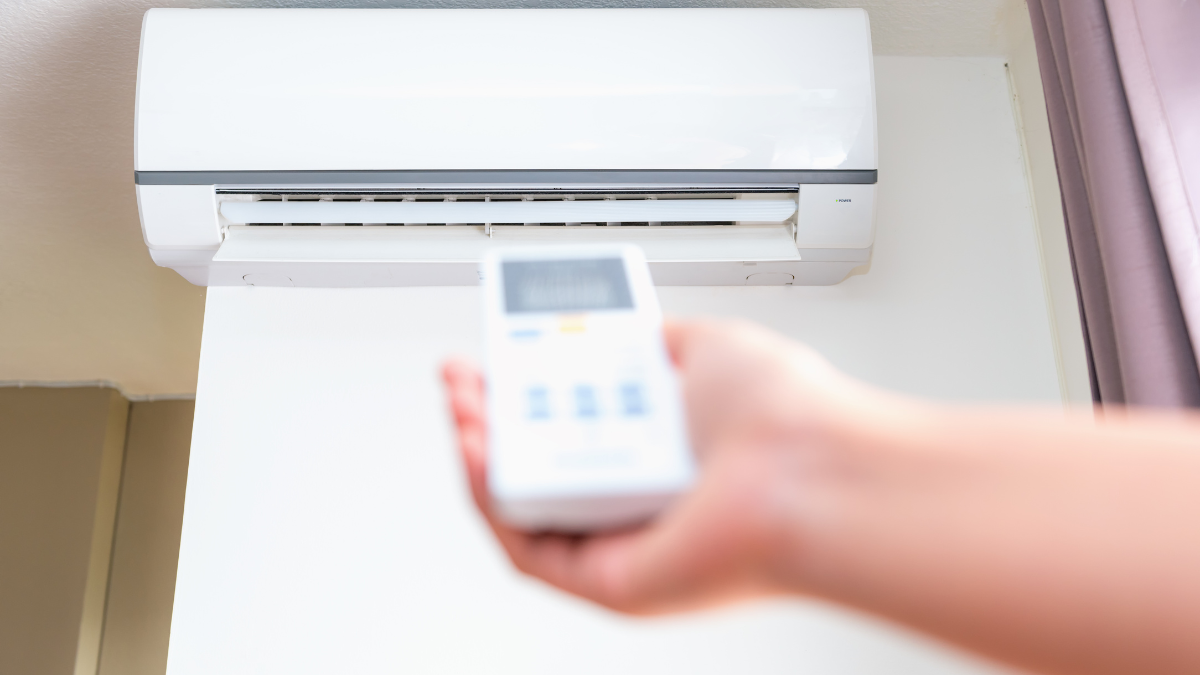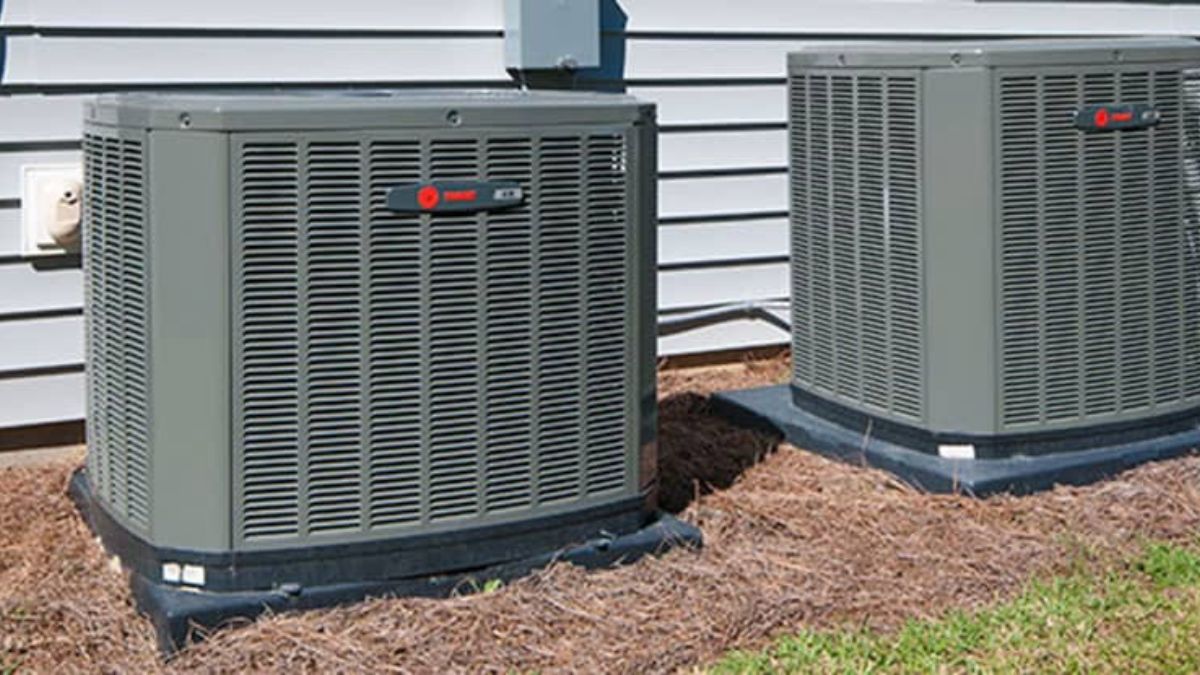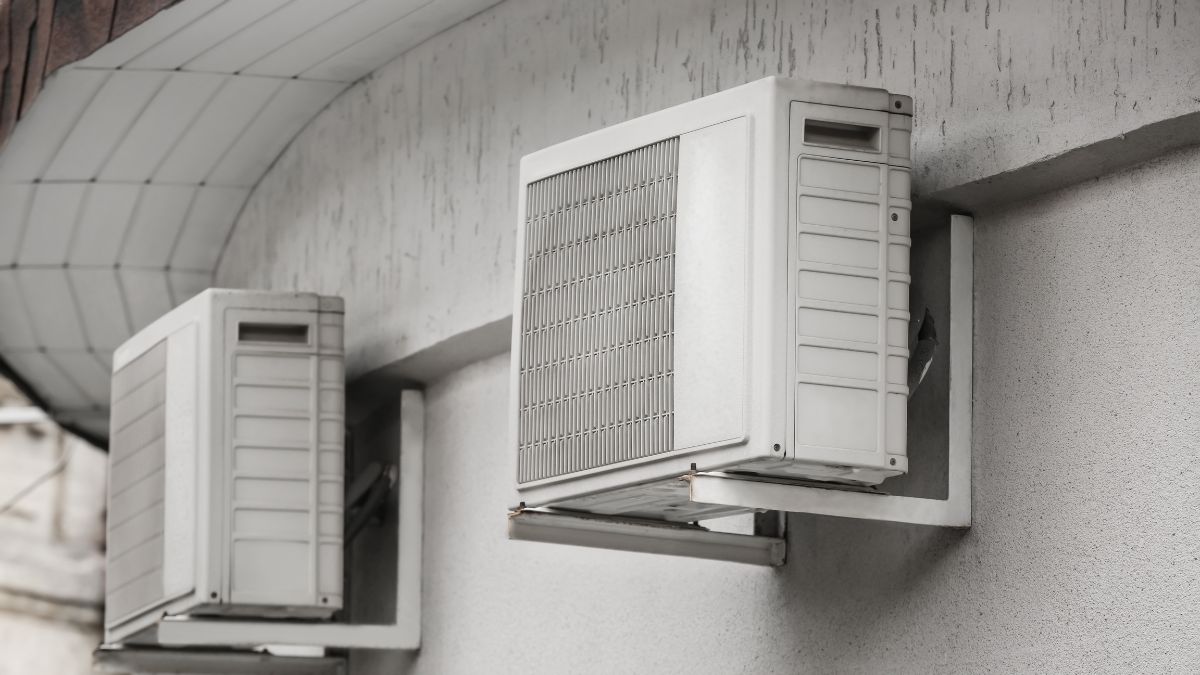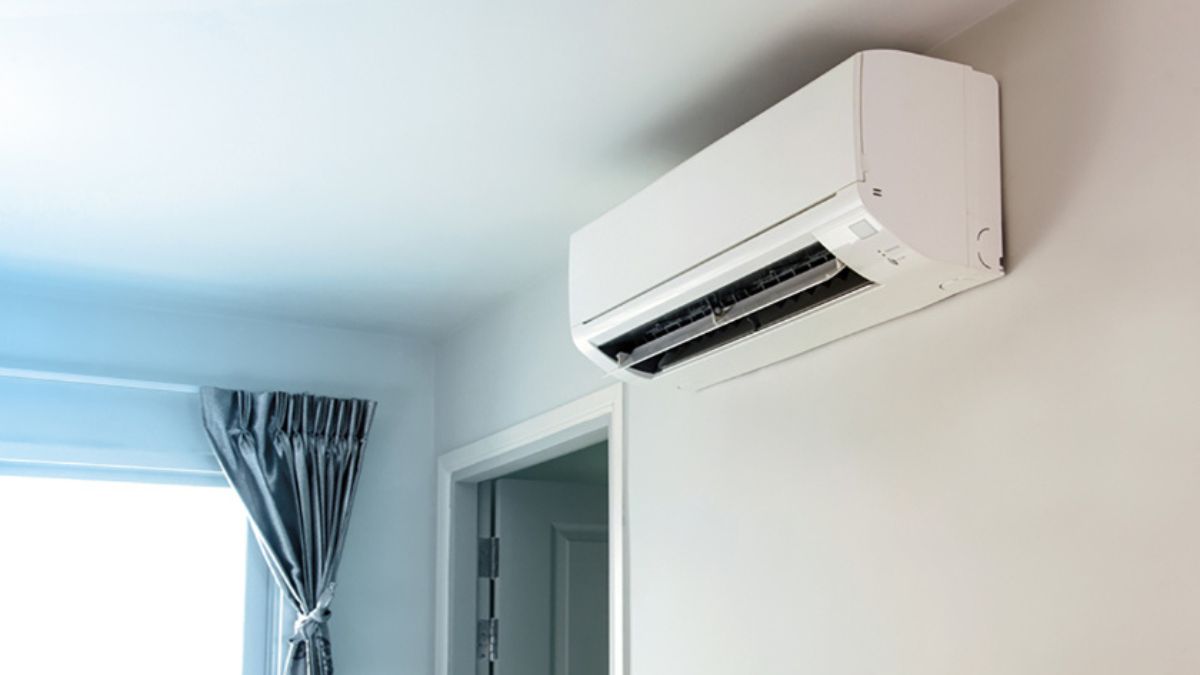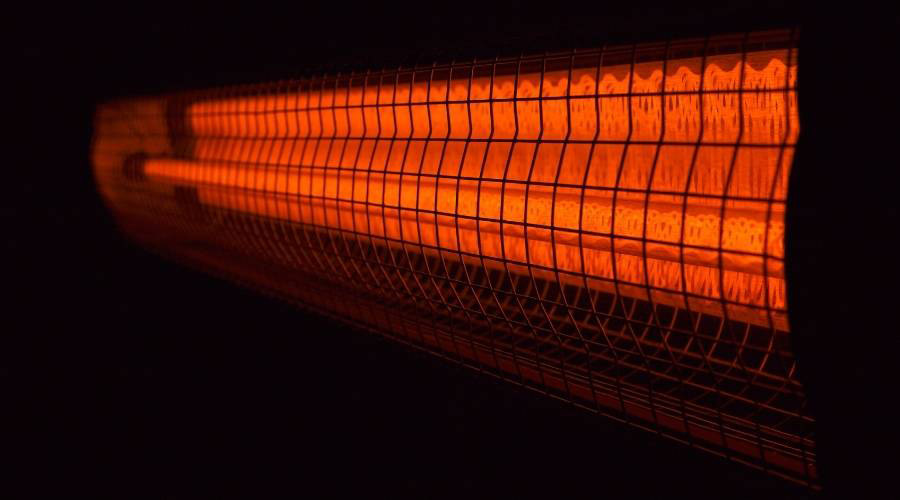
It is finally wintertime, and you soon begin to find yourself cold, even in your home. You might wonder why this is, especially if you have a finished basement with a family room or have your furnace on at 80 degrees.
In this case, you may have found yourself getting a space heater, or three, to ensure the warmth of your home. But one must wonder whether space heaters can be left on overnight or not?
Simply put, many space heaters are not safe to be left on overnight. Radiators cause over 20,000 home fires and approximately 300 related deaths and injuries annually. This is due to over usage, not replacing the space heater or its parts after a long time.
However, modern space heaters are much safer despite those numbers and have drastically lowered the number of house fires and related deaths and injuries over the past decade. They have better safety precautions to prevent the overheating of the elements and short-circuiting that may lead to your residence catching fire.
As you continue to read this article, we will discuss the different heaters, the best heater for you, and set up and use space heaters properly. Following any precautions will help you prevent the severe repercussions of improper use of your space heater. Keeping that in mind, let us go over this answer more in detail.
How To Get & Set Up A Space Heater Safely
If you need to warm up your home during the winter and your central heating system is not good enough for you, then a portable space heater is a viable option, according to the DOE or Department of Energy. You would need one because you want to save some money and only warm the parts of the house you are in the most.
However, all space heaters are high-wattage appliances that have the potential to malfunction and start a fire. These space heaters cause 43% of annual house fires and nearly 83% of related injuries and deaths. They become relatively safe to use if you follow specific safety steps and precautions.
Setting Up A Space Heater: The Correct Way
When setting up and plugging a space heater in your home, you must be mindful of a few things. Let us go over these things down below:
- Make sure you give the heater room. Place it on a solid flat surface and keep it at least three feet from anything flammable, such as curtains, furniture, or bedding.
- Do not put the heater on top of any furniture or cover it with anything. Both of these will increase the risk of fires.
- Ensure the radiator is not close to high-traffic areas in the room. You will likely want to keep them closer to the doors or hallways so that the heater will not be tipped over on accident when walking past.
- When plugging in the heaters, do make sure to keep them plugged directly into the outlet. Never use an extension cord or power box that could cause overheating, leading to fires.
- Be sure not to run the cord where you can step on it or trip over it. Running the cable under any rugs or furniture is also never okay.
- Finally, keep any liquids far from your space heater and be sure not to be wet when handling it as it can shock you while also putting the heater at risk of shorting out and eventually causing a fire.
How To Run A Space Heater Properly
When you run the space heater, do frequent checks to see if the plug, the cord, the wall outlet, and the space heater’s faceplate are hot. If it is, unplug and stop using it immediately.
Having a hot cable is the most dangerous of the group because it means the cord is damaged or defective and could spark and start a fire at any given moment when in use.
It is essential to use your space heaters for heating only. Do not use heaters to warm your bed, cook or thaw food, dry cloths, or thaw frozen pipes.
Only run your heaters for short periods when you need them. Overall, do NOT run the heater 24/7 or overnight. Make sure to not leave your radiator in an unattended room or in a child’s room where they can knock it over or burn themselves, and ALWAYS unplug the heater and safely store the heater when you are not using it.
Finding The Perfect Heater For Your Home
When buying a space heater for your home, make sure you purchase the correct one for the environment you want to use. For instance:
- A small or infrared heater goes in small rooms.
- A large electric or permanent gas-burning heater can be in larger rooms.
When looking for a space heater, something else to consider is looking for one with a smart sensor that will automatically shut off the unit when it is tipped over or starts to overheat.
When you find the appropriate heater for your needs, you need to check to see if the heater has been recalled by the CPSC or Consumer Product Safety Commission. You will also want to check the labels for one of the following three:
- ETL label from Intertek: The proof of product compliance with the North American safety standards.
- UL mark from Underwriters Laboratories: Global safety certification.
- CSA International certification: Where a product, service, or process has been tested in Canada or the USA. It should meet the requirements of a CSA standard or another certified document.
Be sure to use your judgment as well. When you set up your space heater, do not use it if anything looks slightly off. Make sure to return it if applicable and get a new one.
The Different Types of Space Heaters
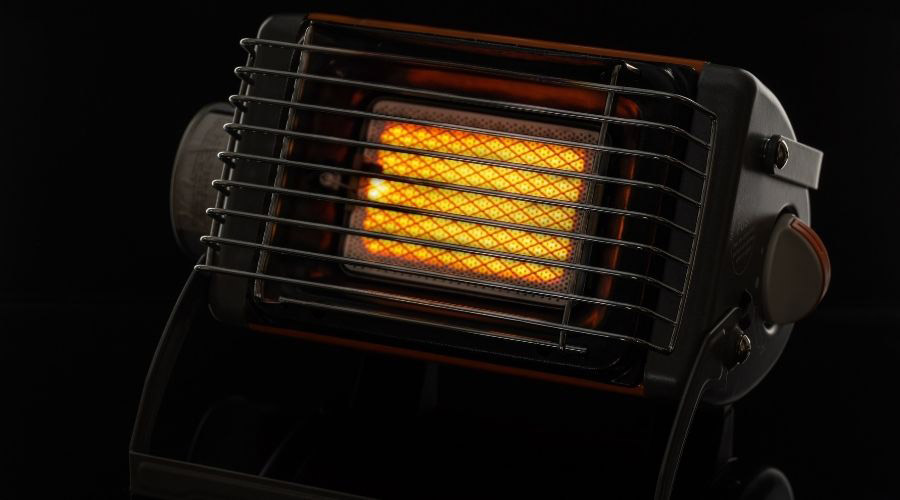
Ceramic Space Heaters
When considering buying a ceramic space heater, you are mainly looking at energy efficiency and portability.
These provide precision heating, allowing you to directly control where the heater is pointed at a given moment. These heaters generally come with fans behind the ceramic element, allowing you to direct the heat flow.
Another thing to remember is that ceramic heaters heat up fairly quickly because ceramic heats up faster than metal.
However, another quirk of ceramic heaters is that they cool down much quicker. Not only that, but ceramic space heaters allow you to save money on your electric bill each month while also being generally a small and compact heater that will let you move the heater from room to room as you please.
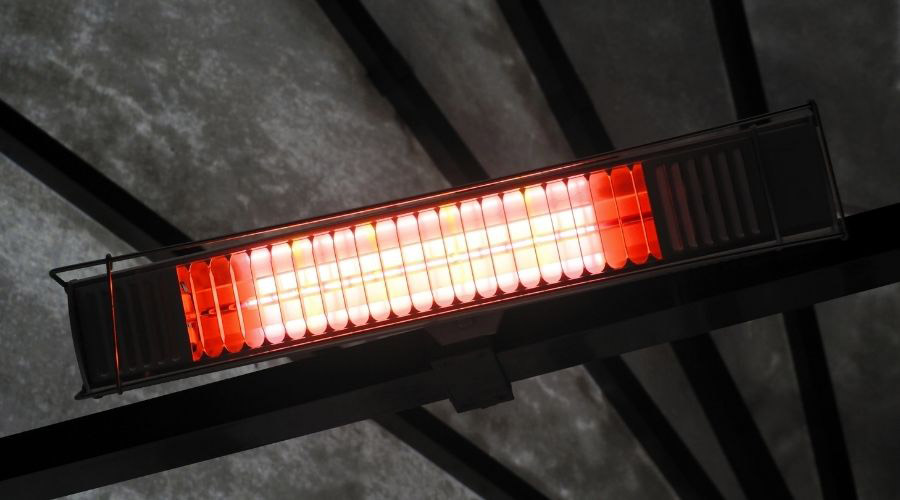
Infrared Space Heaters
Infrared heaters are one of the most popular heaters on the market. Infrared heating units use infrared radiation to heat the area they are pointed at.
These heaters have an increased safety rating due to the central fact that they don’t get as hot as other space heaters. They also typically have a metal enclosure that is cool to the touch allowing you to move the heater if needed while it is still on.
These heaters are also tranquil, mainly because they have no moving parts like a fan. Having no moving parts makes these heaters low maintenance and the easiest to fix, requiring you to replace the element most if you don’t replace the whole heater.
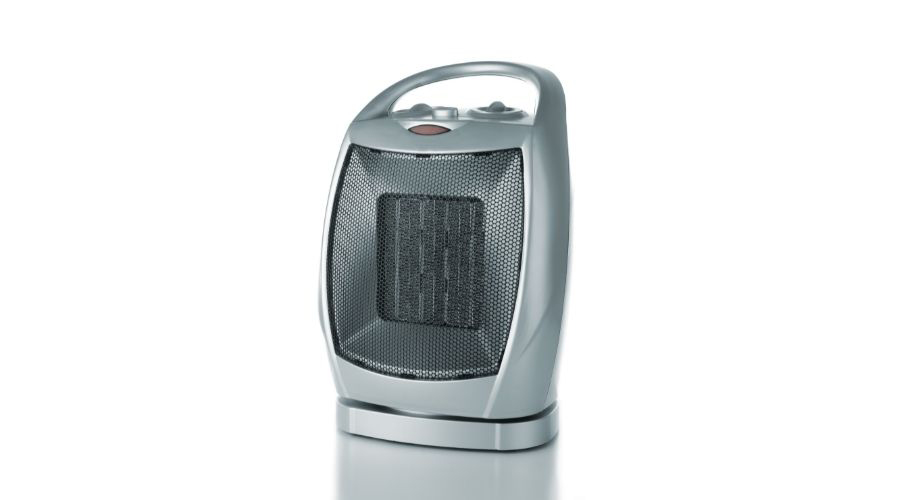
Electric Space Heaters
These heaters are generally fast space heaters that use nothing but electricity and a fan to regulate heat in space or a small room. Electric radiators are portable for room-to-room use while also providing fast heat-up time.
Electric space heaters are also easy to use; just point and flip a switch. However, they are best used for smaller rooms or residences.
Gas Space Heaters
Gas furnaces are generally quite large and require professional installation. They also need a chimney or flue to vent out the emissions from the combustion process that these heaters use to heat your home. These heaters require a professional to come out yearly to ensure your heater is up to par.
The main reason for this is the biggest issue with these heaters; sometimes, they can have a carbon monoxide leak that is extremely dangerous and fatal.
We recommend you also install a carbon monoxide detector near your gas heater to alert you when this happens.
However, all that being said, gas space heaters are the best for large homes and rooms, and provided your regular yearly maintenance, these heaters can last a long time.
Conclusion
Space heaters are made to heat up whatever area you want in the house. However, they cause many house fires, fire-related deaths, and injuries a year, so it is not wise to leave your radiator on all night or 24 hours of the day. That being said, many of these fire issues can be helped by properly maintaining and using your space heater and the proper one for your needs.


